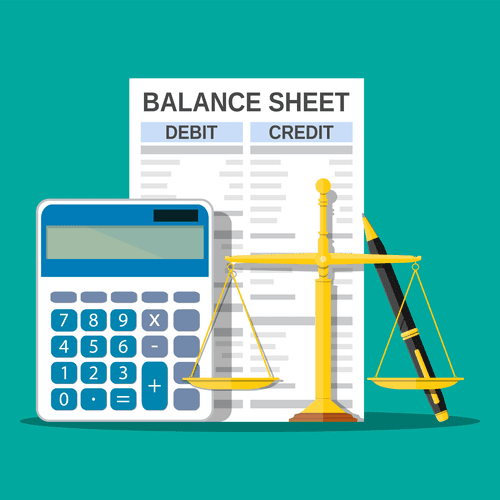
In the world of financial management, a full charge bookkeeper plays a crucial role in keeping businesses on track. These professionals are the unsung heroes behind the scenes, handling everything from day-to-day transactions to complex financial reporting. With their expertise in budgeting, forecasting, and financial planning, full charge bookkeepers ensure that companies have a clear picture of their financial health at all times. If you seek an SME and consumer goods accounting services expert who can efficiently manage all your accounting and bookkeeping tasks, consider hiring a full charge bookkeeper.
Your business structure and its implications for payroll and tax.
Although full charge bookkeepers combine accounting and bookkeeping services for SMEs, they do differ from accountants in some ways. The main difference is that full charge bookkeepers are not expected to work with audit and tax reports or act as financial advisors. For such matters, they would still seek external assistance from experts in SME and consumer goods accounting services such as controllers or certified public accountants. The distinction between a regular bookkeeper and a full charge bookkeeper primarily resides in their level of responsibility and the complexity of their tasks. This retained earnings includes recording financial transactions, reconciling accounts, and preparing financial statements.
Interested in a Full Charge Bookkeeping Role? Read This
They are often entrusted with making financial decisions on behalf of the company, such as approving expenses and managing cash flow. This level of autonomy requires a deep understanding of financial principles and the ability to analyze financial data effectively. On the other hand, a regular bookkeeper typically follows established procedures and guidelines set by the full charge bookkeeper or the company’s management. In summary, a full charge bookkeeper is a highly skilled and essential member of any organization.
Archaeological Materials Analyst Job Description Updated for 2025

A full charge bookkeeping setup ensures that every dollar in and out is tracked carefully. From invoicing to accounts payable, your bookkeeper keeps the flow steady and organized. This active cash flow management highlights early patterns like slow-paying clients or overspending vendors and allows you to act before issues grow. You’ll also what is a full charge bookkeeper be expected to prepare financial statements, such as profit and loss reports or balance sheets. In addition, you may have to do things like create budgets or handle payroll tasks on your own if that’s part of your job description.

Having a degree in a relevant business or finance focus is also more attractive to those looking to hire. Some bookkeepers also seek out seminars and other methods of continuous learning. For bookkeeping as a profession in general, people can start straight out of highschool. Aside from a highschool diploma, there aren’t any mandatory requirements to begin financial record-keeping.
What are the three types of bookkeeping?
They offer many different courses that will help you achieve this designation. This will show potential employers that you’re serious about your career and have the skills they’re looking for. If you’re interested in becoming a full charge bookkeeper, there are a few things you need to know. That’s what this article is about, you will learn everything you need to know. If your business or personal tax return was extended back in April, October 15 is the final deadline to submit…. Escalon and its affiliates are not providing tax, legal or accounting advice in this article.
Balancing In-House Bookkeeping with Full-Charge Bookkeeping

Moreover, full charge bookkeepers can provide valuable financial insights that can help small businesses identify areas for improvement and implement growth strategies. By analyzing financial data and generating comprehensive reports, these professionals help business owners gain a deeper understanding of their financial position, cash flow, and profitability. Small business owners often lack the time and expertise to effectively manage their own financial records. They understand the importance of accurate bookkeeping in maintaining financial stability and making informed business decisions. Additionally, outsourcing bookkeeping services provides access to specialized expertise. Full charge bookkeepers who work for outsourcing firms are well-versed in the latest accounting practices and regulations.

However, as your business appetites grow and your company scales, you might ask yourself whether this role should be taken Suspense Account to a higher level as well. ” question and explain the job’s duties, responsibilities, educational requirements, and more. If you’re just starting out with your small business, you’ll probably be satisfied with the services of a regular bookkeeper. They’ll be in charge of getting your finances organized, keeping track of sales, income and expenses, and executing payrolls. The primary distinction lies in their educational and certification requirements.
- If your business revenue is gradually increasing, you might consider hiring a full charge bookkeeper to manage your finances well and handle the complexities that come with business growth.
- Upon completion, earn a recognized certificate to enhance your career prospects in finance and investment.
- They are responsible for reconciling bank statements, ensuring that all transactions are properly categorized and recorded in the general ledger.
- By combining the right educational background, technical proficiency, and interpersonal skills, aspiring full charge bookkeepers can position themselves for success in this dynamic and rewarding field.
- Moreover, technology has enabled real-time collaboration between bookkeepers and their clients or colleagues.
- A reliable bookkeeping service provides data that supports a robust marketing strategy and streamlines the process of submitting a loan request.
Unlike a clerk, they may also oversee payroll, manage accounts payable and receivable, and maintain the general ledger, acting as a key candidate within the in-house accounting department. They are often engaged by growing businesses that cannot handle all the financial tasks on their own. Full charge bookkeepers manage payable and receivable records, reconcile bank statements, process payroll and employee records with payroll tax accuracy, and meet tax deadlines. They generate financial statements, oversee budgeting and forecasting, and support entrepreneurship and accounting using online bookkeeping methods and line of credit insights.
Moreover, the time and effort required for small business bookkeeping can be overwhelming for a business owner who needs to focus on sales, customer service, and other core aspects of their business. By taking over the complicated and time-consuming tasks of bookkeeping, a full charge bookkeeper allows the business owner to focus on core areas of their business. So the position of a full charge bookkeeper doesn’t cover all the duties of an accountant. Also, the formal education requirements are higher for an accountant, and they need to hold a bachelor’s degree in accounting or finances at least.
